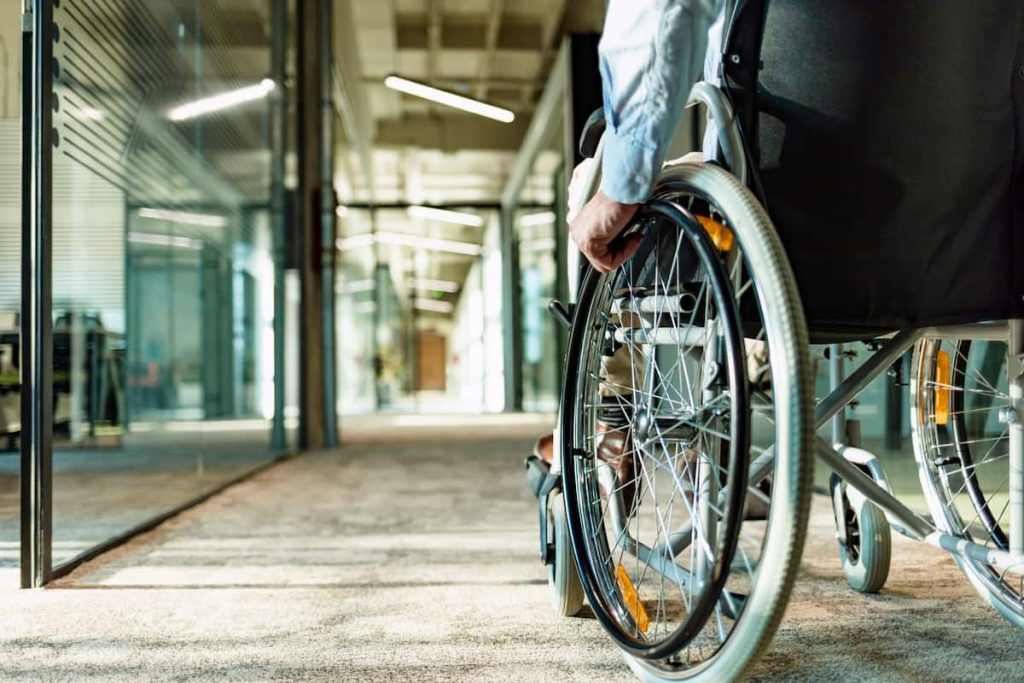FREE CASE EVALUATION
In some of the most severe workplace accidents, a worker may suffer a debilitating injury, leaving them dependent on assistive devices to do even the most basic tasks.
Let’s discuss some common assistive devices you may need after a work injury and answer a question that we hear a lot: Does workers’ comp cover the cost of assistive devices?
Common Devices:
Wheelchairs
This is one of the most crucial mobility devices you may need after a disabling work injury or illness. A wheelchair will especially come in handy if you suffer paralysis, traumatic brain injury, amputations, spinal cord injury, or rheumatoid arthritis.
This device is designed to give you the freedom to move around and complete your daily tasks despite having diminished mobility. There are generally two types of wheelchairs: Manual and electric wheelchairs.
Prosthetics
After losing a limb, your best chance to regain mobility is generally a prosthetic limb. For example, if you have lost the part of your leg below the knee, a transtibial prosthetic may be an excellent solution for you.
On the other hand, if you have lost an arm, you can either go for a transradial prosthetic for the part below the elbow or a transhumeral prosthetic for the part above the elbow.
Bladder and Bowel Assistive Devices
A work-related spinal cord, rectal, or urethral injury can leave you with bowel and bladder complications. You may find yourself needing to use a colostomy bag and other bladder assistive devices.
Respiratory Equipment
If you’ve been diagnosed with a work-related lung disease, your breathing may be impaired. And you may be forced to use respiratory equipment such as BPAP or CPAP machines.
After a work-related injury, other assistive devices you may need include braille equipment, hearing aids, speech aids, dressing aids, braces, crutches, canes, walkers, and scooters.
Does Workers’ Compensation Cover Assistive Devices?
Yes. Missouri workers’ compensation laws generally cover medical bills, including assistive devices. However, this doesn’t mean the insurance company will automatically pay for any assistive device your doctor suggests; quite the opposite.
The insurance company is a profit-making organization and may refuse to pay for your assistive device on the grounds it is not necessary. An experienced attorney can communicate with the insurance company on your behalf and fight to ensure you get the full amount of benefits you are legally entitled to.
Missouri Workers Compensation Attorneys
If you have suffered a work-related impairment that has left you needing assistive devices to perform tasks and activities, you generally deserve to be compensated.
Give us a call 24/7 for a free case evaluation with a Missouri work injury lawyer with over 30 years of experience.
Get FREE Legal Advice
Call today to speak with an experienced Missouri workers compensation attorney!
Call (816) 399-3706
